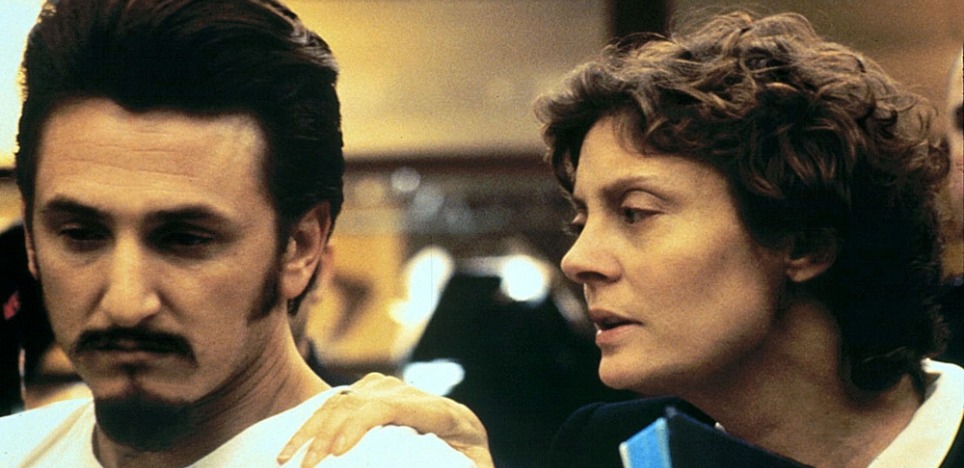If you want to see the brave, look at those who can forgive. If you want to see the heroic, look at those who can love in return for hatred.
— Bhagavad Gita
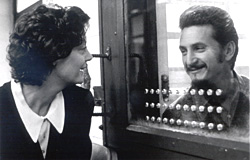
In 1982, Sister Helen Prejean, a Catholic nun, started corresponding with a death row inmate in Angola Prison in Louisiana. The experience changed the direction of her ministry and propelled her into activism against the death penalty. Tim Robbins has taken material from her book Dead Man Walking and reshaped it into one of the most inspiring and positive portraits of Christian ministry ever put on film. Susan Saradon won an Academy Award for her luminous portrait of Sister Helen Prejean.
Dead Man Walking (1995) presents a rounded and riveting look at the life and work of this nun who demonstrates the spiritual practices of listening, forgiveness, and compassion with a death row prisoner and with the parents of his victims. This unforgettable film exposes the cruelty of death by lethal injection and offers instead an alternate path based on love. It also shows that hate is the worst prison of all.
This film runs 122 minutes and is rated R for a depiction of rape and murder. For a review of the film and a plot synopsis, click here.
1. THE SPIRITUAL LIFE
"The spiritual life," according to Joan Chittister, "is not achieved by denying one part of life for the sake of another. The spiritual life is achieved only by listening to all of life and learning to respond to each of its dimensions wholly and with integrity."
- What character qualities make Sister Helen Prejean such a helpful spiritual advisor?
- Discuss the different perception of the spiritual life held by Sister Helen and her co-workers and the Catholic prison chaplain. What is your definition of the spiritual life?
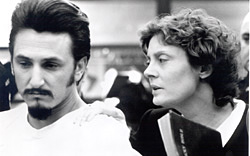
2. FOLLOW THE EXAMPLE OF JESUS
In response to a question by the parents of the slain girl as to why she's ministering to Matthew Poncelet, Sister Helen says, "I'm just trying to follow the example of Jesus who said that every person is worth more than their worst act."
- How would you describe Sister Helen's vision of Jesus Christ and his importance in her life and ministry?
- Jesus was a model of the compassionate person. He was also an executed prisoner and a victim. Which of these -- and other attributes -- of Jesus are most meaningful to you?
3. HATRED
In Real Love, Theodore Isaac Rubin writes, "Hate is chronic, deep, abiding hostility that goes on and on spilling over and polluting all aspects of life. It is corrosive to self. It blocks and destroys all other feelings, especially love. It contributes to bitterness and cynicism."
- Throughout this drama, Sister Helen is trying to find a way out of hate. What forces of hate in other people resist her efforts?
- Talk about the death penalty as a vehicle of hate, bitterness, and cynicism. Why do you think this form of legally mandated murder so popular with the American public?
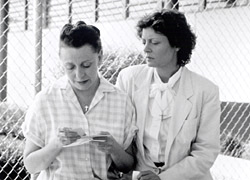
4. HOLY LISTENING
The Quaker writer Douglas V. Steere has written, "Holy listening — to 'listen' another's soul into life, into a condition of disclosure and discovery, may be almost the greatest service that any human being ever performs for another."
- Why does Sister Helen go to the families of the victims? What are their special concerns? What does she learn from them?
- How do you rate yourself as a listener? Who has taught you the most about the spiritual dimensions of being present with another person?
5. YOU ARE A SON OF GOD
After Matthew Poncelet takes responsibility for murder and rape, Sister Helen says to him: "You have dignity now, nobody can ever take that from you. You are a son of God."
- What is Poncelet's response to being called a son of God? What does Sister Jean imply when she says this to him?
- Spin out what it means to you to be a son or daughter of God. Talk about your ideas about being created in the image of God or the presence of the divine within you.
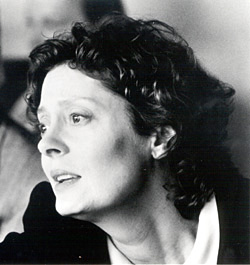
6. THE FACE OF LOVE
Sister Jean's final words to Matthew Poncelet are: "I want the last thing you see in this world to be the face of love. So you look at me when they do this thing. I'll be the face of love for you."
- What do you think Sister Helen's love and acceptance for Matthew means to him?
- Discuss the idea that we get closer to God in this life by loving each other. Who has been the face of love for you this year?
7. FORGIVENESS
In her book Dead Man Walking, Sister Helen writes: "Forgiveness is never going to be easy. Each day it must be prayed for and struggled for and won."
- How do you interpret the last image in the film of Sister Helen and the father of the slain boy praying together in a church?
- What has been your experience of the liberating power of forgiveness? Why must it be prayed and struggled for? What has this film taught you about forgiveness?
This guide is one in a series of more than 200 Values & Visions Guides written by Frederic and Mary Ann Brussat. Text copyright 2001 by Frederic and Mary Ann Brussat. Photos courtesy of Grammercy Pictures. This guide is posted as a service to visitors to www.SpiritualityandPractice.com. It may not be photocopied, reprinted, or distributed electronically without permission from Frederic and Mary Ann Brussat — except it may be duplicated for use by groups participating in the e-course "Going to the Movies as a Spiritual Practice." For other uses and for a list of guides in the Values & Visions series and ordering information, email your name and mailing address to: brussat@spiritualrx.com.
